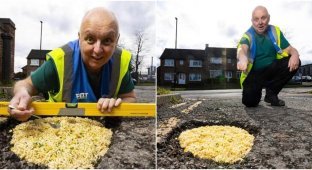A Briton revealed the secret of how he made road workers eliminate 10,000 Potholes (5 photos)
In one hand, Mark Morrell clutches a tape measure engraved with the words "Best Grandpa" and in the other, a spirit level - a weapon he has nicknamed "the sword of truth". He carefully measures the length and width of the pothole, then its depth. After recording this vital data, he takes out his smartphone and snaps photos, like a forensic scientist at a gruesome crime scene. 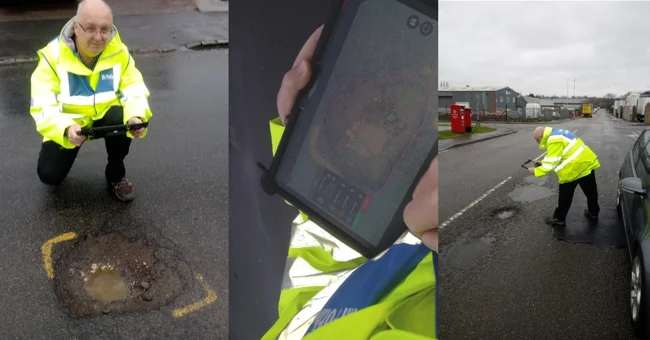
"The secret to success is being a pain in the ass," says Morrell, who has been nicknamed Mr. Pothole.
The 63-year-old retired gas engineer, who lives in Brackley, Northamptonshire, has had 10,000 potholes fixed in the last decade. And he has shared his tips for getting the authorities to fix your road and get compensation.
"Start by writing down the size of the pothole. You should always have measuring tools in your car. But to win the fight for justice you have to be persistent and understand the politics of the local authority." 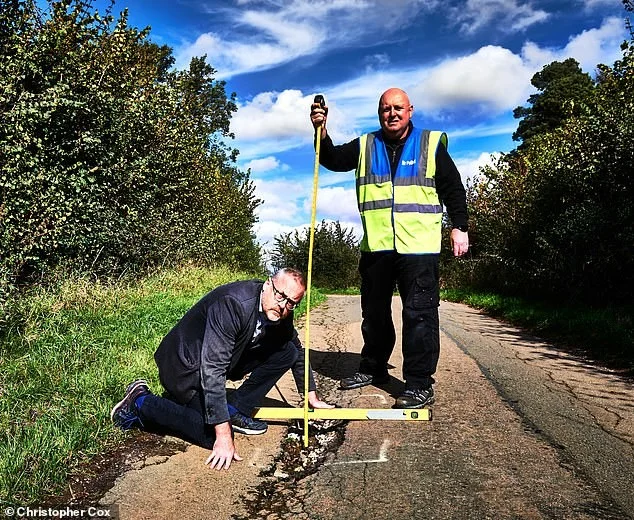
Mark Morrell with a Daily Mail correspondent
As a rule, the hole should be at least as deep as a golf ball - 4cm.
The pothole that Mark measured is on the outskirts of Marston St Lawrence, a village in Northamptonshire where singer Geri Halliwell and her husband, Red Bull Formula 1 team principal Christian Horner, live.
"At 12cm deep, 18cm wide and 260cm long, this pothole could cause serious damage to a car. I will report it immediately. Furthermore, I must ensure that my complaint is dealt with in due time and action is taken." 
Morrell, the former mayor of Brackley, admitted: "We have fewer potholes than any other town in Britain because I have never given the council any slack."
In the UK, councils often make excuses because they have up to 26 weeks to fix a problem. However, if they cannot provide evidence of regular road checks - from weekly on motorways to annual on smaller roads - they will be held liable. 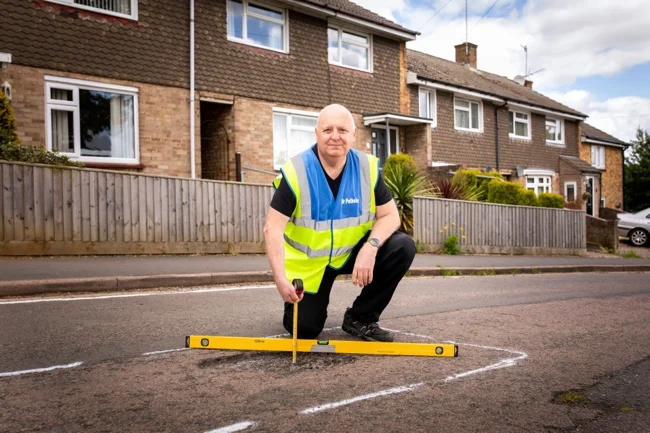
Morrell added: "Of course, it's not just about road safety, it's also about the cost to motorists. When you go to the garage, the mechanic should have written down that the damage was caused by a pothole."
According to the Centre for Economic and Business Research, there are currently more than 1 million potholes in the UK, costing the economy £14.4 billion a year.
Simon Williams, a spokesman for the RAC, says pothole-damaged cars typically cost £460 to repair.
"Lack of funding is a common excuse, but there's also a clear lack of common sense. The pothole we measured was one the council had flagged three months ago but hadn't done anything about because there had been no complaints," said Morrell. 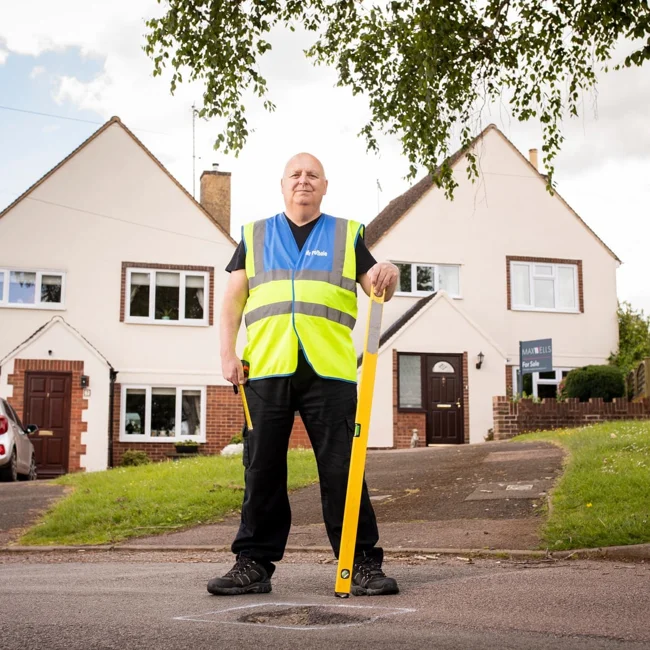
Research by Confused.com found that Britons made 4.4 million pothole-related claims to their councils last year, up 6% on 2020.
But local authorities are getting greedier. In 2023, they paid out £3.3m, down £500k on 2020.
Mr Pothole's guide to claiming compensation:
1. Take a close-up photo of the pothole with a tape measure, noting its position on the road, signs and damage to the car. Note the time, weather and road conditions. A map of the area is also useful.
2. Find out who is responsible.
3. Get the mechanic to write that the damage was caused by the pothole and attach this to the repair bill, which should be itemised and dated.
4. It will be possible to recover compensation for a damaged car if a cause-and-effect relationship between the inaction of road workers and the accident itself is proven.












